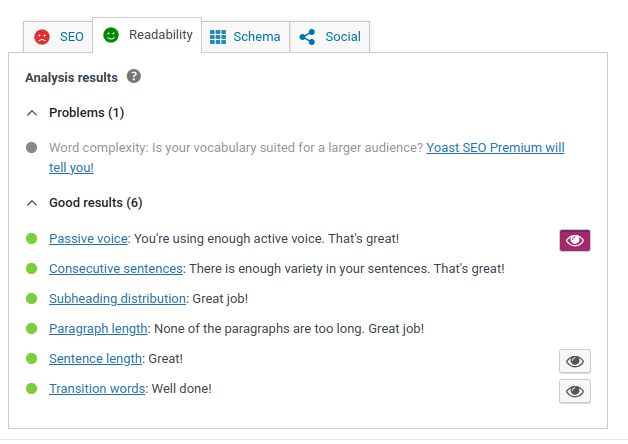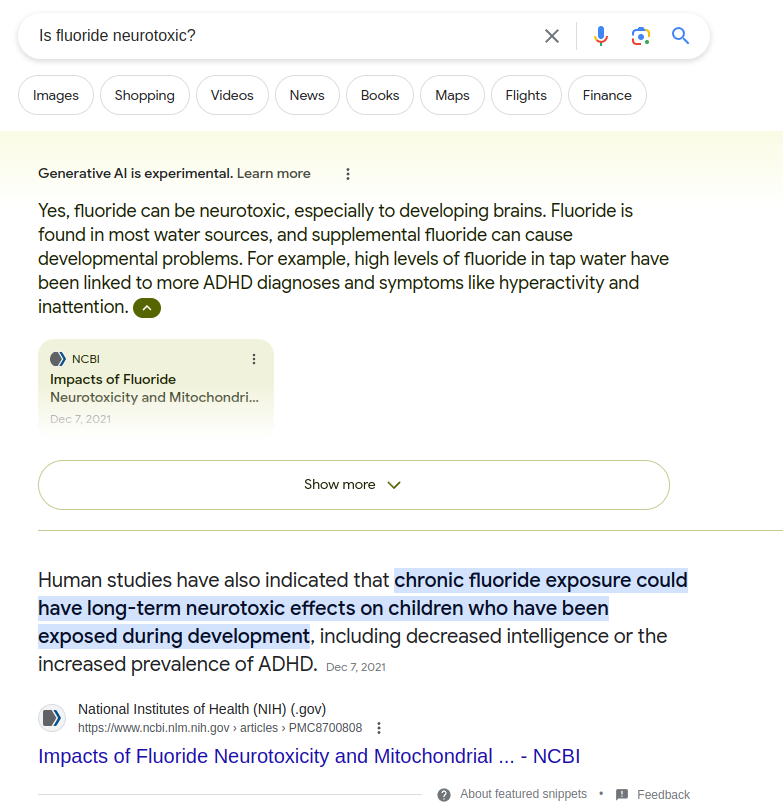When Google released the Penguin algorithm update in 2012, it seemed like the end of the world for many webmasters. Their website traffic tanked instantly, along with their earnings.
They were always told to build backlinks for SEO, and that’s what they did, or paid others to do for them. Many of these guys were small-time and had no intention of spamming the internet. They just wanted to make a decent living from their work, and it’s incredibly hard to do that if no one can find your website.
With that said, most of the trash from the web was wiped out with Penguin, and that’s okay. The folks who didn’t spam the web carried on and started to earn even more, so in theory, it was good.
At the time, I had a few websites that were doing just fine and none of them were affected by the update. In fact, I have never had a website lose traffic due to an algorithm update. They usually kept on going as if nothing happened. Once they got to a certain level of traffic and/or earnings, I would sell them.
My First Google Penalty…
Except now, this March update hit a few of my sites hard. What sites did it hurt the most? My smallest sites. Yeah… as if penalizing them somehow did something positive for the internet. See, they have a mix of AI and human content, and the human component is very strong within each of the articles. It makes no sense.
There wasn’t any link-building involved, no spam, no keyword stuffing, and no shady tactics whatsoever. They hardly even had articles published, with most having less than 10 blog posts.
I’m talking 150 search impressions to absolutely 0 a day! For what? Not spamming the web under a big brand’s website? I’m not mad that it happened, because they weren’t earning anything. Here’s what I am a little angry about it…
Certain websites are using all AI, and they get away with it. Google will rank big media over the small guy, even if the small guy has better content. By now, everyone in the SEO space knows about the “best printer 2023” search results showing an AI article from The Verge.
But I dare you to try and do it, see how many impressions you get in search...
Does Google Even Care?
Now I get it, The Verge has plenty of high-quality content and other things going for it. But still, if the goal is to wipe out low-quality content, then that’s exactly what it should do. On a page-by-page search-by-search basis. How fair is it to the new guy who spends hours putting together a list of the best printers, only to get zero traffic at all because a big brand can post literally anything and outrank him…
Now take a look at the search results above The Verge for this keyword:

Tell me, do you actually go to The Washington Post for tech advice? What about CNN? Because they’re just a few spots below. Page 2, features CNET and PCMag again. Google will repeatedly show one major site over and over again before it gives a small website a chance.
Google is Lazy, and Mainstream Media Has Taken Over the SERPs
At this point, the SERPs are just like Google News – only mainstream media ranks. Regardless of your opinion, that is a problem when it comes to the internet. The internet isn’t supposed to be a place just for big companies to dominate everything.
There used to be room for the small guy, the regular men and women who just wanted to write about things they love and make some money – or even just have someone read what they wrote. It’s not even just about money at this point.
Google SERPs are spammed by big media sites, but the updates are supposedly meant to lower spam content. It’s not considered spam when it comes from CNN, or WaPo, or The New York Times. There are plenty of tech blogs out there, but yeah, I guess NYTimes is the website to visit when you want to find a good printer! Screw the sites that are designed to literally cover all printers…
Big media websites can make moves to game the SERPs, but smaller sites will get penalized if Google even senses they’re trying to get on the first page.
Maybe I’m expecting too much, but it sounds like ranking big media only is just the easy way to prevent spam. Perhaps Google has become complacent or abandoned its efforts to accurately identify spam. I get it, there are so many shady link-building tactics that the Lazy G can’t seem to catch on.
Also, if Google cares so much about its users then why does it rank gated content? If someone has to pay to read your content, then you obviously have an audience and don’t need Google traffic. Just sayin’.
No one likes to click a link from Google to read a paragraph or two before getting prompted to put in their credit card information.
If I can’t rely on Google for traffic, then what should I do?
In 2009, when I started building websites, I believed that everyone needed a website. The reason was that social media platforms could remove your presence without notice. Back then, MySpace would unexpectedly take down pages for unknown reasons, erasing all the marketing and effort put into promoting them.
Keep in mind, that I was promoting music from 2007 to 2010 – so I knew about growing a social media presence before most ever thought it was worth doing. The smartest and most savvy of us from the early 2000s knew the importance of having a website. Something that no one can take from you.
Nowadays, having a strong social media presence is the way to go – unless you’re an Andrew Tate and offend a bunch of people. You can’t spam social media with affiliate links, but you can promote your website and build a mailing list.
Build a Community
You can also build communities around specific topics! Google still shows love to Reddit, so you can optimize your subreddit and rank through their website – to bring traffic to your website. Sure, there are more steps involved for the user to go from Google to your website, but at least people can find you.
What platform should you use? Well, that depends on your target audience. However, Reddit is a great example, as you can build a subreddit around ANY topic. So in theory, it will work for every niche.
There are also Facebook Groups, which can do very well for most topics. But that’s a given, as FB has more users than other networks. Quora has something called Spaces, which are also beneficial for bringing in traffic.
You’ll have to be patient, post often, and slowly but surely, build a community around your niche. Don’t be too promotional, and if possible, don’t promote anything at all until you have a solid amount of members in your group.
Focus on Brand Pages
Which pages should you even make for your brand? Ones that bring in traffic. It can be X, Facebook, Mastodon, Bluesky, or even Pinterest. Start growing your brand pages to guarantee a future with large amounts of website traffic.
Facebook & Instagram: Meta provides you with the biggest user base of all social networks, so yeah, you should probably create a brand page here and start scheduling out content. The ability to boost your posts will come in handy if you have any kind of budget for advertising. It’s super cheap and highly effective. Even a $5/day ad campaign can make a huge difference.
X: Formerly Twitter, X, is the platform where you can be yourself and not worry about offending snowflakes. Yeah, this one is going to be the ideal platform for many brands. The world has gotten soft, and the internet followed. X is different, and advertising is cheap! Build up your profile, get followers, and start using this platform to bring in targeted traffic.
Pinterest: You may think Pinterest is just for old women who like DIY arts and crafts, but honestly… it’s perfect for most niches. Why? The boards rank in Google, even in 2024. Create a business Pinterest account, link your website, and create boards with SEO in mind. Start pinning your content!
YouTube: This one is obvious, but it’s not for everybody. If you’re comfortable getting in front of a camera or have the budget to pay someone else to make your videos, then yeah, YouTube is great! It still takes time and patience, but overall, the pros outweigh the cons and you can get a ton of traffic from YouTube.
If that’s not enough, here is a list of 20 free traffic sources you can use today.
Stop Caring About SEO Metrics! Here’s What I Mean…

You see that image above? That’s my SEO score as I write this article in WordPress. It means nothing to me. Do you know how many times I’ve optimized for the right keywords, had perfect scores, and never got a click from Google? Even with highly detailed articles with a completely unique perspective on the topic – nothing.
Don’t get me wrong – I am good at what I do. I have ranked for a ton of highly competitive keywords over the years. I successfully reached the milestone of having over 10k unique visitors per month on many new websites using my SEO skills.
But, it all comes down to focusing on the user. The reader. The person on the other end of the screen is visiting my webpage. Why are they searching for “you can’t rely on Google for traffic”? In this scenario, they’re likely upset and furiously searching for like-minded individuals on Lazy G.
However, most will come from LinkedIn and possibly not agree with me at all. Maybe they will think I just happen to suck at SEO. Maybe they will think I wrote this because I’m feelin’ a little salty about my new websites getting penalized or de-indexed… I don’t care.
Here’s my point, and here’s what I mean when I say stop caring about SEO metrics…
Don’t optimize your website like some sort of robot and constantly worry about fitting in the same LSI keywords as your competitor just because you assume it will make your content rank better. No, that’s not the case. Copying #1 can only make you #2 at best. Simply making your content longer doesn’t work anymore. To show up on the first page, bring something new to the table entirely.
“I’m afraid to start a sentence with the word discover, or unveil, simply because I’m afraid it will sound like AI.”
SEO metrics are often misleading. In today’s world, I’m afraid to start a sentence with the word discover, or unveil, simply because I’m afraid it will sound like AI. The more human you are, the better. Can you use AI? Yes, of course. But, find ways to add human thoughts and perspectives to it.
Analyze Competitor Links Manually
When you manually view a competitor’s website you will find out more about it. I know SEMrush tells you everything!!! Except, SEMrush isn’t Google, and it can never keep up with Google’s algorithm. This, by the way, is always evolving as the Lazy G has been using AI to do its spam moderating for years now. I highly doubt SEMrush or any other paid tool is capable of understanding how that’s done.
Think about this: If AI is watching for spam, and it notices you hit every metric for the first page, almost as if you were some sort of robot – then what do you think that it thinks you’re trying to do? It will think you’re trying to game the SERPs.
Unique perspectives and insight matter. Giving value still matters. I do think Google will eventually stop ranking small sites entirely, and I do think we need to stop caring about it. Search might not be a big thing at all next year. AI-generated answers thoroughly cover everything.
Most Searches Are Mobile, and AI IS Going to Be Huge on Mobile Soon…
When ChatGPT launched, I knew it was near the end for Google search and SEO. Of course, all the “SEO experts” on Linkedin will tell you otherwise so they can sell you on their services.. or even sell you SEMrush with an affiliate link. These guys don’t get it. Maybe they were given too much fluoride growing up…

If you’re on a mobile device and looking something up, why would you go through and manually do research when Google’s generative AI does it for you? Think about it. Most people aren’t going to manually research unless they’re writing a paper or doing schoolwork. Even then, Google’s response will put study links and other credible sources right below their response for you.
So, what’s your take? Will you shift your focus toward the user and away from Google? In my opinion, the smartest approach is to operate as if search traffic won’t ever come your way. That mindset liberates you when crafting content—it lets you prioritize what your readers truly want. And guess what? That’s precisely how you build a loyal audience that keeps coming back for more.



